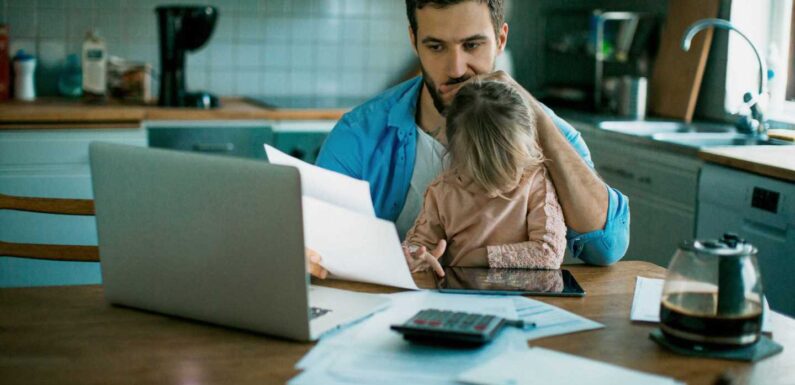
MILLIONS of hard-up families receive benefits to help them get by financially.
You can usually claim two different rates for child benefit depending on how many children you have.
Most parents in the UK can claim child benefit but there are still certain eligibility rules.
You can claim if you're responsible for a child who is under 16 or under 20 and in approved education or training.
Only one person in the household can get child benefit, but there is no limit to how many children you can claim for.
Here we explain everything you need to know about claiming child benefit:
Read more in money

Big bill change for households on benefits starts this month – are you affected?

Full list of changes people on benefits must declare or face up to £5,000 fine
How much is child benefit?
There are two child benefit rates, one for the eldest child and another for each further child or children.
The current rate for your eldest or only child is £24 per week. That's £96 a month or £1,248 a year.
You can get £15.90 for every additional child.
Child benefit payments are likely to rise in line with inflation from April 2024.
Most read in Money

Cadbury discontinues Christmas chocolate – but savvy shoppers find Costco dupe

Heinz launches new ketchup flavour and some say it’s ‘fundamentally wrong’

Urgent warning for millions of Tesco shoppers to use Clubcard points or lose them

Brits on benefits will have their bank accounts checked every MONTH
How do I get child benefit?
Child benefit is usually paid every four weeks on a Monday or Tuesday.
But you can have the money paid weekly if you’re a single parent or getting certain other benefits like Income Support.
You can get the money paid into any account, apart from a Nationwide cashbuilder account in someone else’s name.
You need to apply for child benefit which you can do online through gov.uk.
Only one person can get the benefit for the child or children though so you'll have to decide which parent will get it.
There are other benefits you might get on top of child benefit if you're on a low income, like the child element of Universal Credit.
Who is eligible to claim child benefit?
You will normally qualify for child benefit if you live in the UK and you're responsible for a child under 16.
The support can also be claimed for a child under 20 if they stay in approved education or training.
To be considered responsible for a child, you will live with them or you're paying at least the same amount as child benefit rates to look after them – for example food, clothes or pocket money.
It's important to note that eligibility changes if a child goes into hospital or care and if your child starts to live with someone else.
If you're not sure about your eligibility you can contact the child benefit office.
You won't be able to get the full amount of child benefit if you earn over £50,000 and you'll get nothing at all if you earn over £60,000.
That's because of something called the High Income Child Benefit Charge – but if it applies then it's still worth claiming.
What is the High Income Child Benefit Charge?
If either parent is earning over £50,000 they have to pay the high income child benefit tax charge.
This means you pay back 1% of your child benefit for every £100 of income over this amount.
Once you reach £60,000 of income you have to repay the full amount.
The reduction applies when just one parent or guardian earns more than the threshold, and not on combined household earnings.
Parents have been caught out by the complicated rules and extra charge and have been landed with bills for thousands of pounds.
It's up to parents to notify HMRC if they are liable for the charge and they must file a self-assessment tax return to pay it.
Parents who do know about the charge could also end up missing out on cash.
They can decide to opt out of getting the benefit altogether to avoid having to pay money back, but they will miss out on National Insurance credits.
Read More on The Sun

Legendary BBC comedy show returning to screens 20 years after first ever episode

Louise Redknapp goes Instagram official with new boyfriend Drew Michael
These fill gaps in NI contributions when not working, and count towards how much state pension you get in retirement.
Experts have predicted that 2.5million families will lose child benefits by 2025 due to the threshold remaining the same.
Source: Read Full Article
